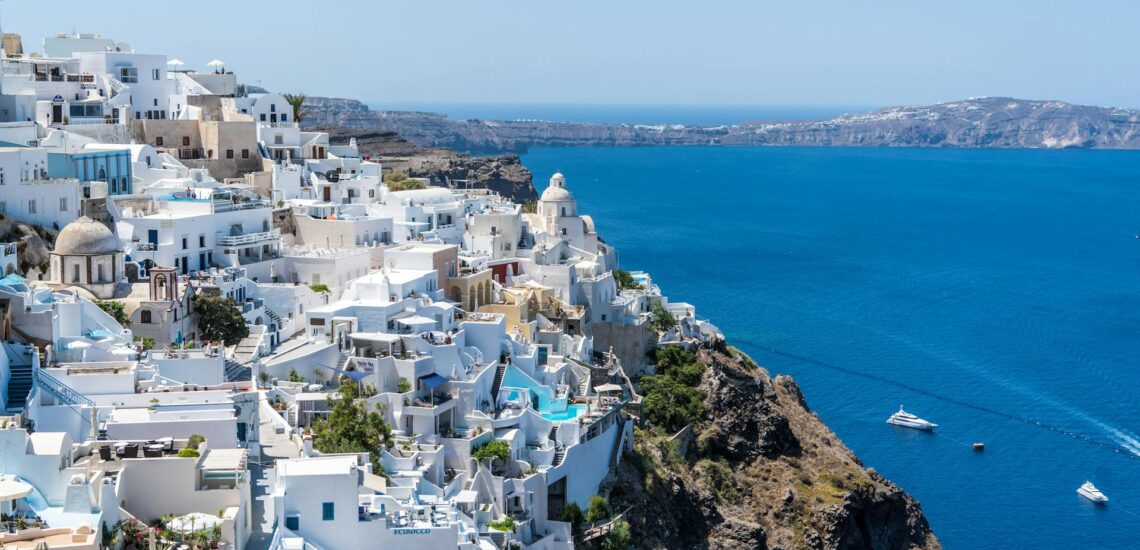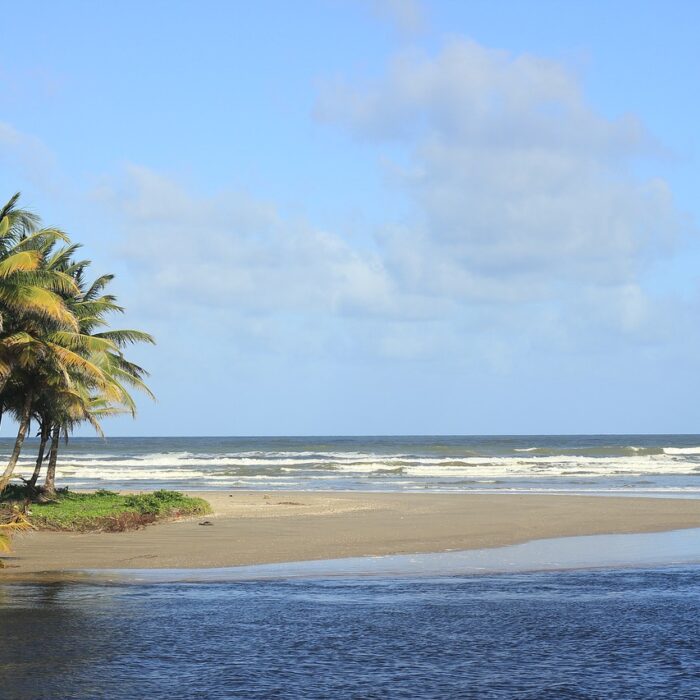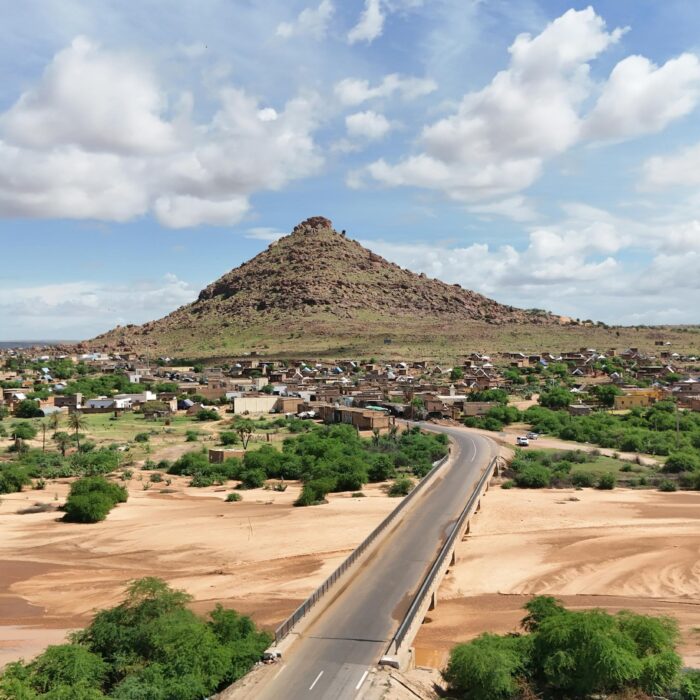Quick facts about Greece:
- Location: Situated in Southeastern Europe, Greece occupies the southern end of the Balkan Peninsula.
- Capital: Athens.
- Official Language: Greek.
- Currency: Euro (EUR).
- Population: Approximately 10.4 million.
- Size: Encompassing an area of about 131,957 square kilometers, Greece boasts diverse landscapes and historic sites.
Fact 1: Democracy appeared in Greece
Ancient Greece is often credited with the development of democracy, particularly in the city-state of Athens during the 5th century BCE. However, it’s essential to note that the form of democracy in ancient Greece differed significantly from modern representative democracies.
In Athens, a direct form of democracy was practiced, where eligible citizens had the opportunity to participate directly in decision-making processes. However, it’s crucial to emphasize that not all residents were considered citizens. In fact, a considerable portion of the population, including women, foreigners, and slaves, were excluded from the democratic process. Slaves, being considered property rather than citizens, did not have the right to vote or participate in political affairs.
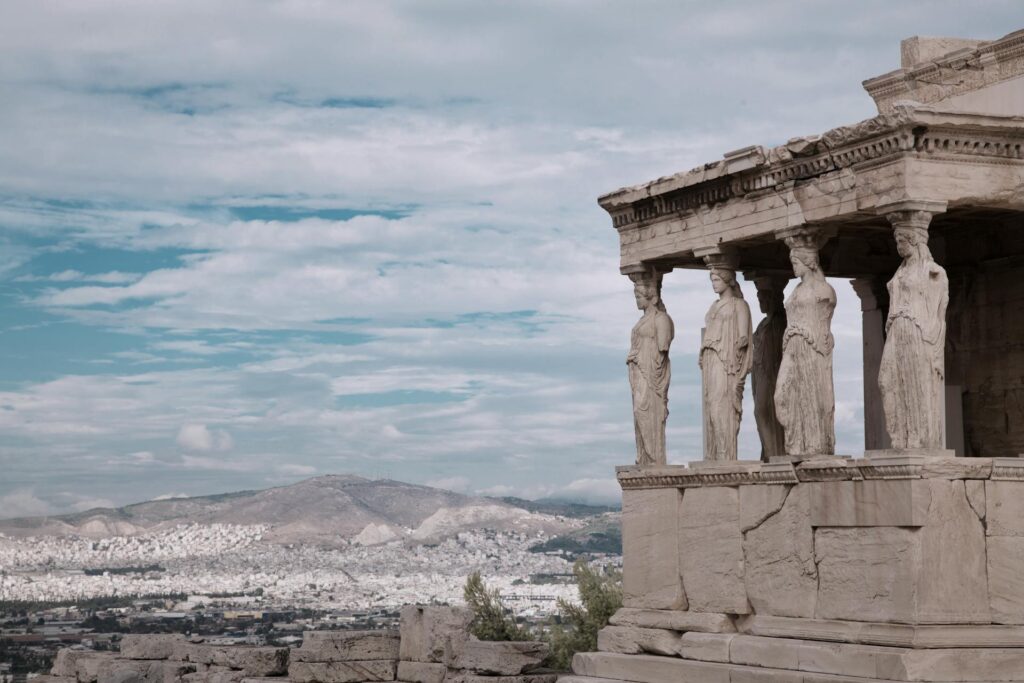
Fact 2: More tourists visit Greece than people live there
Greece is a highly popular tourist destination, attracting millions of visitors each year. With an annual tourist arrival figure often exceeding 30 million visitors, Greece frequently hosts more than three times its resident population, which is approximately 10.4 million. The tourism sector plays a vital role in the Greek economy, contributing significantly to the Gross Domestic Product (GDP). It accounts for a substantial portion of the country’s employment and revenue, making it a crucial industry for economic sustainability. And there’s a lot to see!
Fact 3: There are 18 UNESCO World Heritage Sites in Greece
Greece is home to numerous cultural and natural treasures recognized by UNESCO. These sites showcase the rich history, mythology, and biodiversity of the region. Here are a few notable UNESCO World Heritage Sites in Greece:
- Acropolis, Athens: The Acropolis is a symbol of ancient Greece, featuring several monumental structures, with the Parthenon being the most iconic. Built in the 5th century BCE, it represents the pinnacle of Classical Greek architecture and is dedicated to the goddess Athena.
- Meteora: Meteora is a unique complex of monasteries perched on towering rock pillars in central Greece. Built by monks in the 14th to 16th centuries, these monasteries offer stunning panoramic views and provide insight into Byzantine art and monastic life.
- Delphi: Delphi is an archaeological site situated on the slopes of Mount Parnassus. In ancient times, it was considered the center of the world and was dedicated to Apollo. The site includes the Temple of Apollo, the Theater, and the Sanctuary of Athena Pronaia.
- Olympia: Olympia is renowned as the birthplace of the ancient Olympic Games. The archaeological site includes the ruins of the sanctuary of Zeus, the Temple of Hera, and the ancient stadium where the Games were held.
- Mount Athos: Mount Athos is a mountain and peninsula in Northern Greece, home to a unique monastic community. The area is known for its well-preserved Byzantine monasteries, each contributing to the spiritual and cultural heritage of the region.
- Mystras: Mystras is a medieval fortified town in the Peloponnese, known for its Byzantine architecture and frescoes. The site provides a glimpse into the political, cultural, and economic life of the Byzantine Empire.
Note: When traveling many people choose to rent a car, check if you need an International Driver’s License in Greece to drive and rent a car.
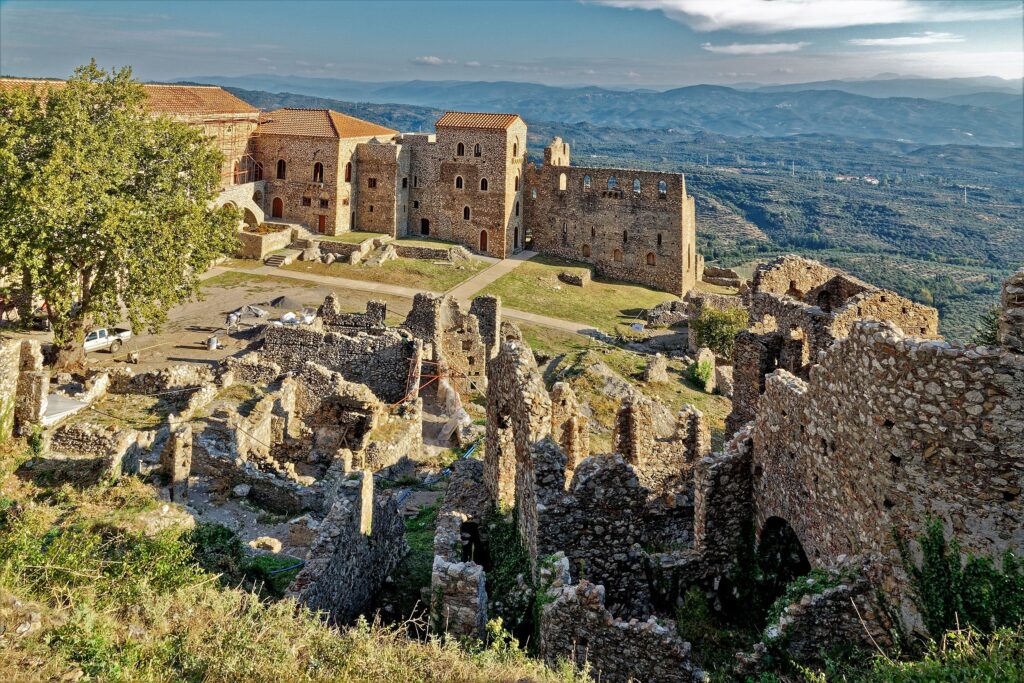
Fact 4: Greek is the oldest language still in use today
The Greek language has a rich history and is considered one of the oldest languages still in use today. Of course over 5,000 years it has changed, here are some key points:
- Ancient Greek Roots: Greek is an Indo-European language with its origins traced back to ancient Greece. It is part of the Hellenic branch of the Indo-European family of languages.
- Classical Period: Ancient Greek had several dialects, with the Attic dialect becoming prominent during the Classical period. This period, around the 5th and 4th centuries BCE, saw the flourishing of Greek literature, philosophy, and arts.
- Koine Greek: After the conquests of Alexander the Great, a form of Greek known as Koine became the lingua franca of the Hellenistic world. Koine Greek continued to be used during the Roman and Byzantine periods.
- Continuity: Greek has demonstrated a remarkable continuity throughout its long history. The Greek language evolved through various stages but maintained a degree of mutual intelligibility between different historical periods.
- Modern Greek: Modern Greek, the form spoken in contemporary Greece, has evolved from Koine Greek. While it has undergone changes over the centuries, Modern Greek retains a significant degree of continuity with its ancient roots.
Many words in different languages have Greek roots, as do names such as Alexei, Anastasia, Alexander, George, Helen, and many others.
Fact 5: There are about 6,000 islands in Greece
Greece is known for its numerous islands, and the exact number can vary slightly based on different classifications and sizes of landmasses considered as islands. The total number is typically around 6,000, making the Greek archipelago one of the most extensive in the world.
It’s important to note that the larger islands, like Crete and Euboea, contribute significantly to the total count, while many smaller islands may be uninhabited or have minimal populations. These islands vary in size, geographical features, and cultural significance, offering diverse landscapes and experiences for residents and visitors alike.
You must have seen photos or videos on Instagram from Santorini, yes it is a separate island in Greece.
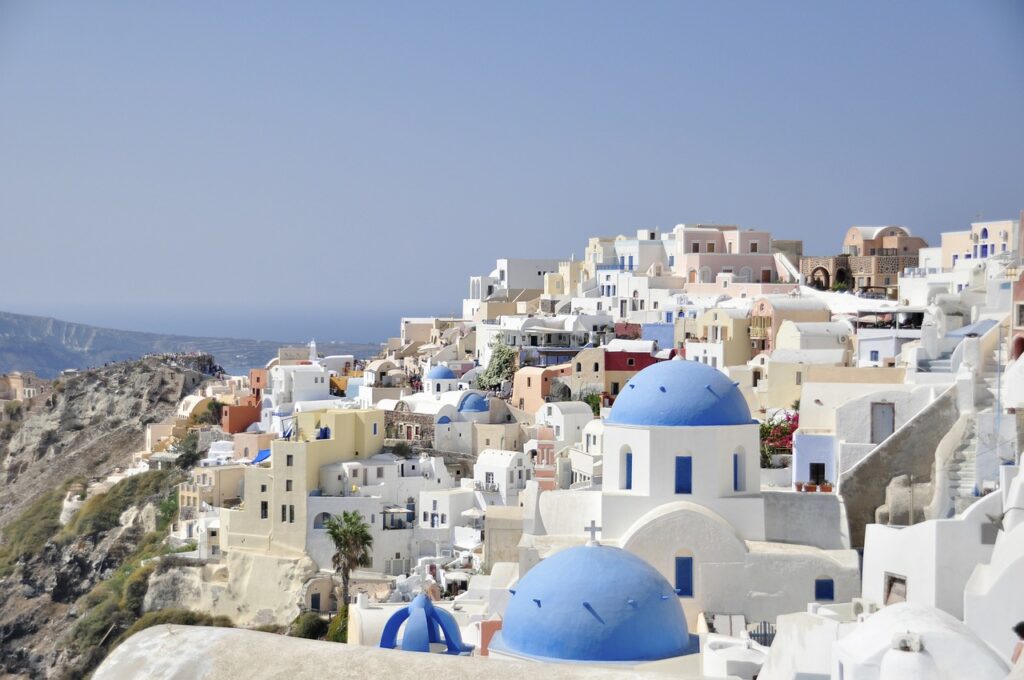
Fact 6: The official name of Greece is not Greece
While “Greece” is the commonly used and internationally recognized name for the country, its official name in Greek is “Ελληνική Δημοκρατία” (Ellinikí Dimokratía), which translates to the “Hellenic Republic.” The use of “Greece” in English and other languages is derived from the Latin word “Graecia” and has been widely adopted for simplicity and familiarity. However, the official designation reflects the nation’s historical and cultural connection to the term “Hellenic,” which refers to the Greek people and their language.
Fact 7: Modern Olympic Games return to the traditions of ancient Greece
The Modern Olympic Games, initiated by Pierre de Coubertin in 1896, aimed to revive and celebrate the athletic traditions of ancient Greece. Coubertin was inspired by the ancient Olympic Games, which were held in Olympia from 776 BCE to 393 CE.
Key elements reflecting the traditions of ancient Greece in the Modern Olympic Games include:
- Athletic Competition: The focus on various athletic disciplines and competitions echoes the spirit of the ancient Olympic Games, where events such as running, wrestling, and chariot racing took place.
- Ceremonial Flame: The practice of lighting the Olympic flame in Olympia and carrying it to the host city is a direct homage to the ancient tradition where a sacred flame burned throughout the ancient Games.
- Opening Ceremony: The grandeur of the Opening Ceremony, including the Parade of Nations and the lighting of the Olympic cauldron, pays homage to the ancient Greek custom of celebrating the Games with elaborate ceremonies.
- Olympic Symbols: The use of symbols such as the Olympic rings, which represent the five continents, and the laurel wreath for winners, reflects ancient Greek traditions associated with victory and unity.
While the Modern Olympic Games have evolved and incorporated contemporary elements, the commitment to honoring the heritage of ancient Greece remains a fundamental aspect of the Olympic movement.
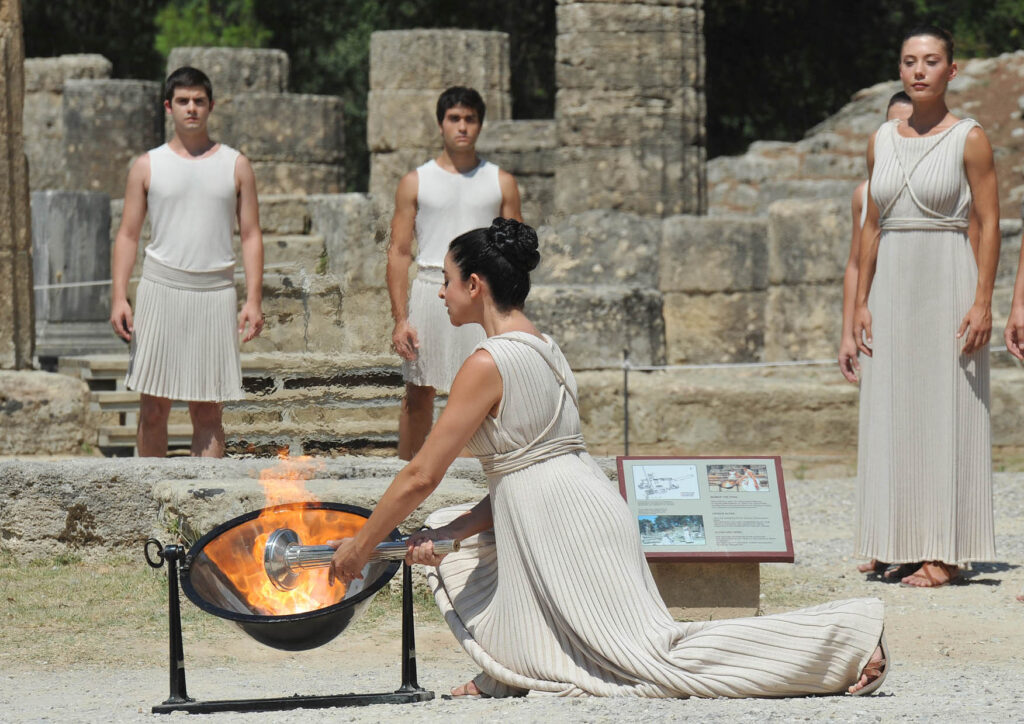
Fact 8: Athens has a lot of theaters (modern ones too!)
Athens boasts a vibrant theatrical scene with a mix of ancient and modern venues. The city is home to numerous theaters, contributing to its rich cultural heritage. While not surpassing the sheer quantity of theatrical stages in New York’s Broadway or London’s West End, Athens offers a unique blend of historical significance and contemporary performances. The city provides a diverse array of theatrical experiences, making it a cultural hub for residents and visitors alike
Fact 9: Greece is surrounded by five different seas
Greece is surrounded by five different seas, making it a unique geographical location. Here are the seas that surround Greece:
- Aegean Sea: To the east of Greece lies the Aegean Sea, known for its numerous islands, including the Cyclades and the Dodecanese.
- Ionian Sea: To the west of the mainland is the Ionian Sea, featuring islands such as Corfu, Zakynthos, and Kefalonia.
- Mediterranean Sea: The southern part of Greece is bathed by the Mediterranean Sea, contributing to the country’s overall Mediterranean climate.
- Thracian Sea: The northern part of Greece is bordered by the Thracian Sea, connecting to the larger Aegean Sea.
- Libyan Sea: Situated to the south of the island of Crete, the Libyan Sea is another body of water that surrounds Greece.
The diverse seas surrounding Greece not only contribute to its geographical diversity but also offer a wide range of coastal landscapes and experiences for residents and visitors alike.
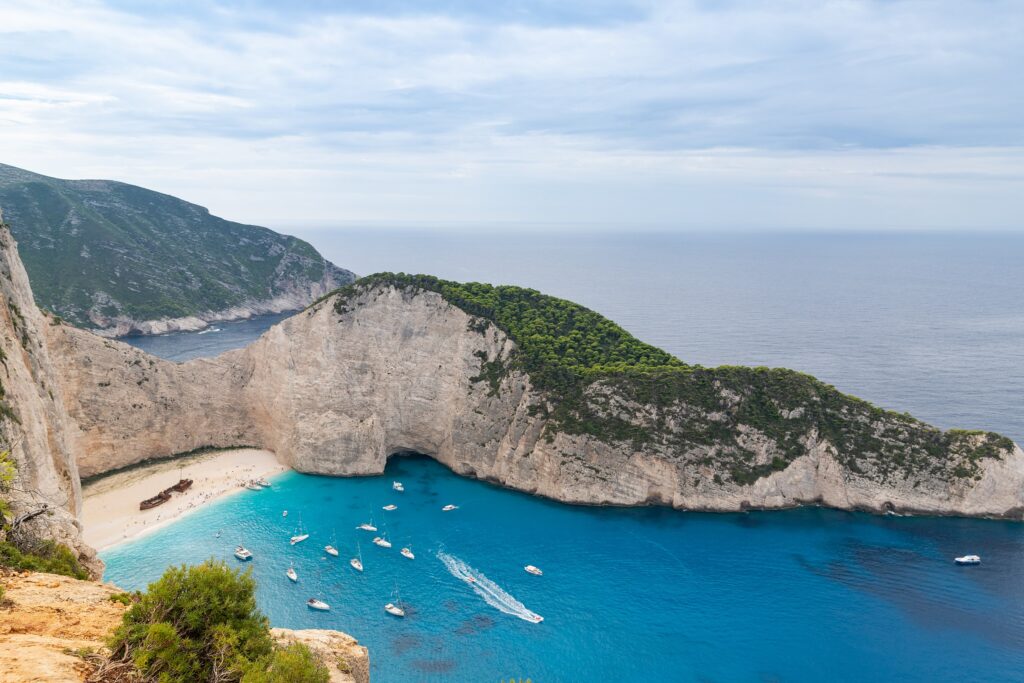
Fact 10: Greece has diverse and abundant wildlife
Greece is known for its diverse wildlife, including over 400 bird species, numerous marine creatures in its seas, and a variety of terrestrial fauna. The country’s commitment to conservation is reflected in the establishment of over 30 national parks and protected areas, preserving its biodiversity. These efforts contribute to Greece’s status as a destination with abundant and varied wildlife.

Published March 03, 2024 • 8m to read

